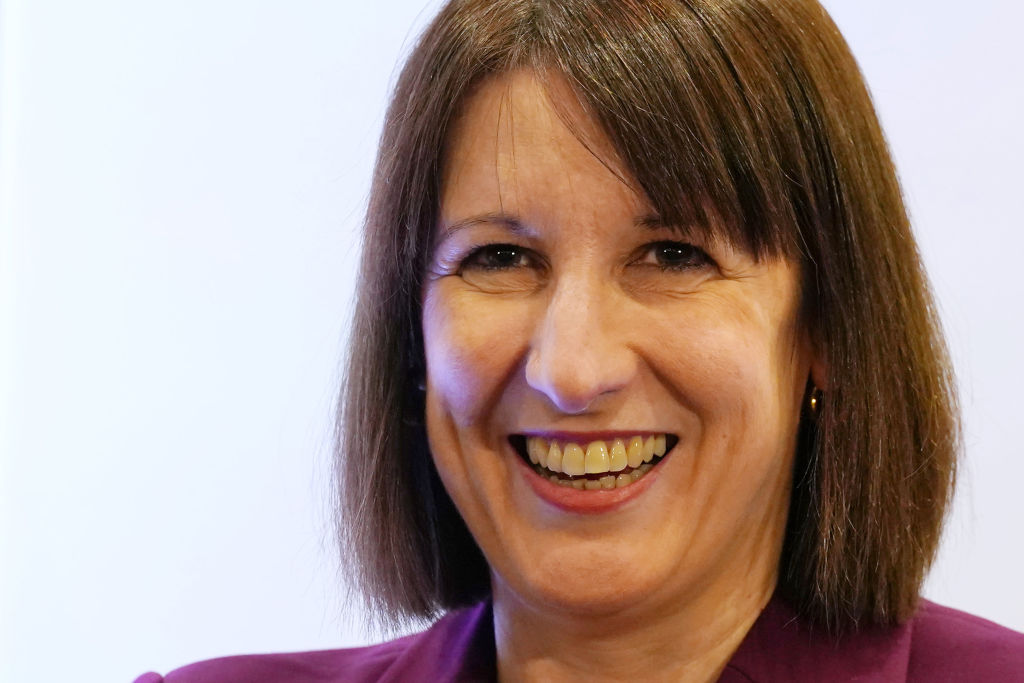When Rachel Reeves was the shadow chancellor, she would round up the spare pastries at the end of meetings and save them for later. No wastage! Her intentions were surely good, but she would have known that there were witnesses, and she knows how political gossip works.
Now, as chancellor of the exchequer, she has just told the BBC’s Nick Robinson that she brings in her own home-cooked lunches in Tupperware. Of course, every part of her personality must scream fiscal responsibility. She has a favourite chess move (the Sicilian defence), that conveniently works as an allegory for her approach to politics. She claims to enjoy freezing cold open-water swimming late at night. A half-eaten croissant sparks rage in her. Do you get the message?
Should I worry about how Rachel Reeves spends her time? I thought about it, and well, yes actually
And now, she wants you to know about the Tupperware. Rachel Reeves runs the sixth largest economy in the world, and she wants you to know she is just like you. She spends at least part of her day organising what she’s going to have for lunch tomorrow.
‘At least that’s less time she can spend messing up the economy’, you might laugh, fairly. But the chancellor of the exchequer shouldn’t have to worry about lunch. When he was president, Barack Obama didn’t ‘make decisions about what I’m eating or wearing’, since it would contribute to ‘decision fatigue’. A mature nation accepts this and gives their politicians staff.
But we are a country that demands that the prime minister sits in the aeroplane seat with the least leg room and on the train seat next to the loos. We are a nation where fewer than one in ten voters think the foreign secretary should fly first class. When he had the Covid that nearly killed him, Boris Johnson was left wheezing in the Downing Street flat alone because the PM has no official GP (or chef, or housekeeper). Ed West calls this ‘ostentatious egalitarianism’, or the ‘Miserable Britain Mindset’.
We view misery as redemptive, and think enjoyment is suspicious. There’s an obvious long link back to Puritanism – ‘the haunting fear that someone, somewhere, may be happy’ – but you can blame the French as well. John Bull and the cult of simple roast beef was always a kind of parodic invention, mean to be the opposite of French effeminacy and refinement. England ended up celebrating the humble to virtue-signal across the Channel.
And if you doubt whether this still exists, look at the readers’ comments under restaurant reviews (nothing more decadent than restaurants, of course). Nice food that costs more than £15 is an ‘entitled palaver’. After a Telegraph reviewer had a £65 meal at one of London’s best restaurants, the top comment read ‘it’s just food – get a kebab every day for a week for the same’. Call it reverse snobbery.
So I don’t entirely blame Rachel Reeves for her performative austerity. She knows the nation she lives in, and knows it would be furious if she were sending an aide to Pret for a salad. Maybe it’s wrong to judge her. When I tweeted about Tupperware earlier, a 2024 intake Labour MP Josh Fenton-Glynn said: ‘Angus, you seem to be angry about someone’s lunch choices. Maybe you need a holiday?’ A kind offer from Josh, but at least invite me on a date first.
Should I worry about how Rachel Reeves spends her time? I thought about it, and well, yes actually. I just think she would be a better chancellor if she didn’t have to worry about making tomorrow’s lunch.
Perhaps Josh should head to Pret on Reeves’s behalf, saving both her and the nation from this silly parade.
It’s worth considering, too, the underlying logic of the Chancellor’s Tupperware economics. Go to any supermarket in London, where she lives, and the ingredients for dinner are easily over £5, sometimes £10 (she could avoid this if she ate ultra-processed foods, but think of the optics). Say she spends half an hour making it, and the time-opportunity cost starts to look a bit poor.
Reeves probably isn’t saving that much money eating her own lunch (why doesn’t she eat in parliament’s taxpayer-subsidised canteens?). But also, she’s believed to be earning more than £150,000 a year. She doesn’t have to fret too much about her own marginal pound. If she’s that careful about money, then that should be a good thing for the public finances. But we’re not reaping the rewards.







Comments